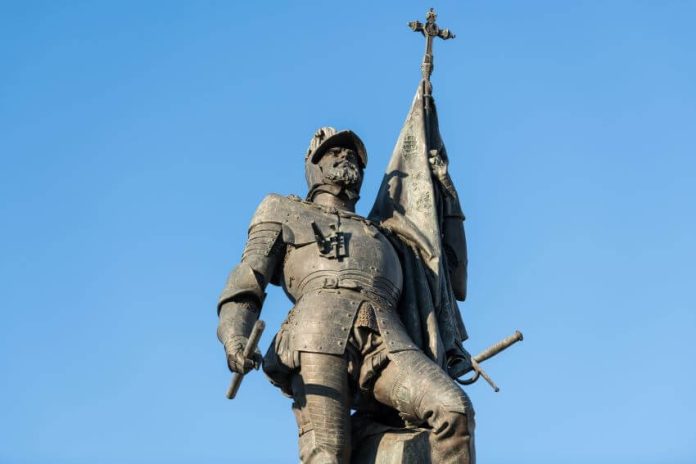Mexicans have not yet overcome the pain of the Spanish conquest and “try to hide” the nation’s history, according to the author of a new biography about conquistador Hernán Cortés.
Spanish historian Esteban Mira Caballos told the newspaper El Universal that when he travels to Mexico he’s surprised that people pretend that the events of the early 16th century — when Cortés led an expedition that defeated the Aztec empire — didn’t happen.
“But for good or for bad, he [Cortés] is an intrinsic part of their history,” Mira said.
“… We can’t make history up, we can’t … [say] now that the Mexicas [Aztecs] defeated Hernán Cortés because that didn’t happen. History was as it was, and we have to accept it as it was,” he said.
Mira, an expert on the Spanish conquistadors that conquered the Americas, also said that Mexicans still speak about Cortés as if he died yesterday.

“The personage died five centuries ago; if people are raped in Mexico, they say, ‘Hernán Cortés brought rape.’ If there is corruption in Mexico, they say, ‘Cortés brought corruption,’ but the historical figure died five centuries ago. … For reasons I’m unaware of, Mexicans haven’t assimilated their history; their past is a process that is ongoing,” he said.
One Mexican who refuses to let bygones be bygones is President López Obrador, who has sought apologies for the 1521 conquest from Spain’s King Felipe VI and from Pope Francis.
Mira described Cortés as a warrior of his times and accepted that he committed atrocities and “acts of barbarism” and made decisions about good and bad and life and death.
However, the conquistador, a deeply religious man, didn’t see the massacres and pillage perpetrated by the Spanish as being incompatible with his faith, he said.
The historian said it’s important to look at historical events from the perspective of those who participated in them and in consideration of the times in which they lived. Mira said that his book, Hernán Cortés Una biografía para el siglo xxi (Hernán Cortés, A Biography for the 21st Century) does just that.
Cortés was guided by values that are not the same as the values of today, he stressed.

“He wanted a lot more than money — he wanted something else,” Mira said. “He wanted honor for his lineage and even more, he’s the only conquistador of all those I’ve researched that thought about [being remembered by] posterity … and he achieved it.”
“Whether we speak poorly or well of him, five centuries later, he’s still … [being spoken about], which is what he expected,” Mira said.
However, Cortés is not well-known in Spain, the historian conceded.
“Mexicans sometimes think that in Spain we hold him up as a hero … but there are very few people who know who Hernán Cortés is,” Mira said.
“I’m a teacher, and when I talk about the conquest I have to tell my students who Hernán Cortés was because they think he was a pro-[Francisco] Franco general or from the Napoleonic Wars. The majority of the population in Spain doesn’t know who he was,” he said.
With reports from El Universal
